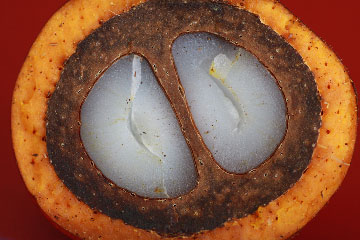The Malaysian government is developing its own certification system for palm oil production, potentially creating another rival to the certification system run by the Roundtable on Sustainable Palm Oil (RSPO), reports Malaysia’s Business Times.
Speaking in Australia, Malaysian Commodities Minister Bernard Dompok said the government is in the “preliminary stage” of developing a sustainability standard for palm oil production to counter tighter standards being pushed by the RSPO.
“We will go ahead because the Roundtable on Sustainable Palm Oil keeps on changing its goal posts on how to produce sustainable palm oil,” he was quoted as saying. “We will come up with a national certification scheme.”
Indonesia — the world’s top palm oil producer — has already announced its own certification scheme, which is primarily based on compliance with Indonesian law and is therefore compulsory.
Malaysian Palm Oil Council Chief Yusof Basiron said Malaysia’s certification standard would be similar and aim to address concerns raised by environmentalists.
 Oil palm seed. Palm oil is used widely in processed foods. By virtue of its high yield, palm oil is a cheaper substitute than other vegetable oils. Photo by: Rhett A. Butler. |
“The industry is already highly monitored. We will just tweak it a little bit and look at what the market and the NGOs want,” Basiron was quoted as saying.
“If they don’t want deforestation, then we will include it in the certification requirements. If they don’t want orang utan to be destroyed, we will include it too.”
The remarks came as both officials met in Australia to voice opposition to an Australian bill that would require separate listing of palm oil on product labels. Presently palm oil can be generically listed as “vegetable oil” under Australian food regulations, but green groups, concerned over deforestation associated with some palm oil production, have pushed for stricter labeling requirements. The Malaysian palm oil industry says labeling — which only applies to palm oil, not other vegetable oils — could lead to discrimination against palm oil-containing products. Up to half of processed food products in some markets contain palm oil, according to the environmental group WWF, which is pushing RSPO certification.
While the creation of another certification standard could create confusion in the marketplace, at least one RSPO member welcomed the move.
“The fact that they are creating their own system (just as Indonesia before them), means RSPO is transforming the system,” said the member, who requested anonymity since he wasn’t authorized to speak on behalf of the organization. “It is, essentially, a race to the top instead of the bottom. Our standard will move towards sustainability and the market will respond.”
“In short, we welcome such developments,” he continued. “If anything, it reinforces what we hope to achieve.”
The RSPO was launched in 2004 as a way to address growing concerns over palm oil production. Its code of conduct includes an explicit commitment to “continual improvement” of its standards.
The first shipments of RSPO-certified palm oil reached market in late 2008. Since then, production has surged, reaching 4.7 million metric tons through the first three months of 2011. A number of the world’s largest producers, traders, financiers, and buyers have now joined the RSPO, including Walmart, Hersheys and CitiBank last week.
But the RSPO has faced criticism from some environmentalists, who say its monitoring and enforcement mechanisms remain weak.
The RSPO recently took action against IOI Group, a Malaysia-based member accused of particularly egregious breaches of RSPO’s code, including social conflict with forest people and clearing of rainforests. Last year the body booted PT SMART, Indonesia’s largest palm oil producer, after it was found to be in violation of RSPO standards. PT SMART has since announced a strict forest policy that will allow it to attain RSPO certification.
Related articles














